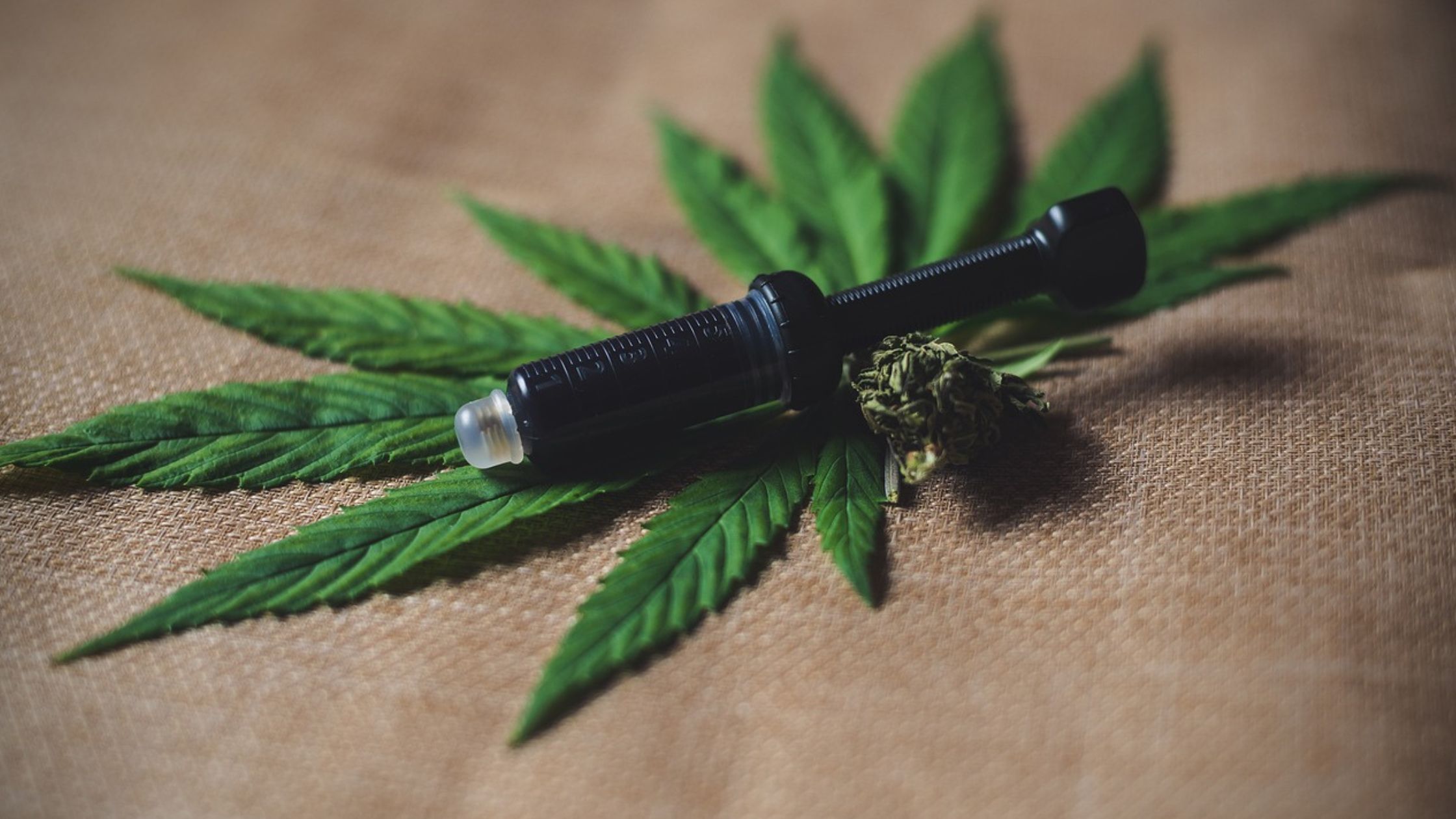Introduction to Cannabis Compounds
The cannabis world is full of terms that can be confusing, especially if you’re new to it. You’ve probably heard about THC, the compound responsible for the “high” associated with cannabis, but what about THCA? These two cannabinoids are often mentioned together, but they play very different roles. Understanding the difference between THC and THCA is essential, especially if you’re interested in the medicinal uses of cannabis or just want to know what you’re consuming.
THC and THCA: The Basics
THC (tetrahydrocannabinol) and THCA (tetrahydrocannabinolic acid) are both cannabinoids, meaning they are naturally occurring compounds found in cannabis. While they share similar roots, they have different effects and properties. THC is famous for being psychoactive—it’s what gets you high. THCA, on the other hand, does not cause psychoactivity, but it has a range of potential health benefits that are gaining attention.
Why These Compounds Matter
The reason these cannabinoids are so important is because of how they interact with your body. THC is sought after for both its recreational and medicinal benefits, whereas THCA is more about wellness without intoxication. Understanding the difference can help you choose the right product for your needs, whether you want pain relief, a boost in mood, or help with inflammation without the “high.”
Understanding THCA: The Non-Psychoactive Precursor
What is THCA?
THCA is the acidic form of THC. In its natural state, before cannabis is exposed to heat, the plant produces THCA, not THC. This compound is found in raw and live cannabis plants, and it doesn’t cause any psychoactive effects. That’s because THCA doesn’t bind to the receptors in your brain the way THC does.
How THCA Changes to THC (Decarboxylation)
THCA becomes THC through a process called decarboxylation, which sounds complicated but is just the scientific term for what happens when you heat cannabis. This process removes a carboxyl group from the THCA molecule, transforming it into THC. Whether you’re smoking, vaping, or cooking cannabis, heat is what triggers this change, and that’s why you experience psychoactive effects.
The Benefits of Consuming THCA
THCA is gaining popularity for its potential health benefits. Many people are turning to raw cannabis or THCA products for therapeutic reasons, particularly because it provides benefits without the intoxicating effects of THC.
Anti-Inflammatory Effects
THCA has shown promising anti-inflammatory properties. It can be particularly useful for those with conditions like arthritis, where inflammation is a major source of discomfort.
Neuroprotective Properties
Research into THCA suggests it may have neuroprotective effects, which means it could help protect your brain cells. This has huge potential for those with neurodegenerative diseases like Alzheimer’s and Parkinson’s.
THCA for Nausea and Appetite
While THC is well-known for its ability to stimulate appetite and reduce nausea, THCA seems to have similar effects without causing a high. This makes it an attractive option for patients undergoing treatments like chemotherapy, where nausea is a common side effect.
THC: The Psychoactive Star of Cannabis
What is THC?
THC is the compound most people are familiar with—it’s the one that gets you high. Found in cannabis after the plant has been heated, THC is the active ingredient responsible for the psychoactive effects of marijuana. It works by binding to CB1 receptors in your brain, which are part of your body’s endocannabinoid system.
How THC Interacts with the Body’s Receptors
THC directly binds to CB1 receptors in the brain, triggering changes in mood, perception, and cognition. This is why people feel euphoric, relaxed, or even anxious after consuming THC. It affects areas of the brain that control pleasure, memory, and time perception, which explains the range of experiences users report.
The Medical and Recreational Benefits of THC
THC isn’t just for getting high—it also has numerous medical applications. Its psychoactive properties make it effective for certain conditions, but it’s also widely used for recreational purposes.
Pain Relief and Muscle Relaxation
Many people turn to THC for pain relief, especially for chronic conditions like fibromyalgia or multiple sclerosis. It’s also effective at relaxing muscles, making it a popular choice for those dealing with muscle spasms or tension.
Mental Health and Mood Regulation
THC has a complex relationship with mental health. For some, it provides relief from anxiety, depression, and PTSD by boosting mood and reducing stress. However, for others, THC can sometimes trigger anxiety or paranoia, especially in high doses.
THC for Sleep and Appetite Stimulation
THC is also famous for causing “the munchies” and making you feel sleepy. These effects are beneficial for patients who have trouble eating or sleeping due to medical conditions like insomnia or chemotherapy-induced nausea.
THCA vs THC: Key Differences
Psychoactivity: Why THCA Won’t Get You High
The most significant difference between THCA and THC is psychoactivity. THCA is non-psychoactive, which means it won’t make you feel high. This is because THCA doesn’t interact with your brain’s CB1 receptors. On the other hand, THC directly engages these receptors, creating the high that cannabis is known for.
Raw Cannabis vs. Heated Cannabis: How Consumption Methods Matter
If you’re consuming raw cannabis—whether by juicing it or eating it—you’re getting THCA. As long as it remains unheated, you won’t experience the psychoactive effects of THC. Once you apply heat, however, THCA converts to THC, and that’s when the high kicks in. This difference is essential if you’re using cannabis for medicinal reasons and want to avoid psychoactivity.
Potential Uses for THCA Without Psychoactivity
THCA’s appeal lies in its ability to offer therapeutic benefits without affecting your mental state. This makes it a suitable option for those who need relief from conditions like chronic pain, inflammation, or nausea but want to remain clear-headed.
How to Use THCA and THC Products
Consuming THCA: Tinctures, Juices, and Raw Methods
If you’re interested in the benefits of THCA, there are several ways to consume it. You can try tinctures that are specifically made from raw cannabis, or even juice raw cannabis leaves. These methods preserve the THCA and offer health benefits without any psychoactive effects.
Using THC: Smoking, Vaping, and Edibles
For THC, traditional methods like smoking, vaping, or consuming edibles are the most common ways to experience its effects. These methods all involve heat, which activates the THC, leading to the psychoactive experience cannabis is known for.
What’s Right for You: THCA or THC?
Deciding between THCA and THC depends on what you’re looking for. If you want relief from symptoms like pain or inflammation but don’t want to get high, THCA might be the better option. On the other hand, if you’re looking for the recreational or psychoactive effects, THC is what you’ll need. Many people find a balance between the two, using THCA for daily wellness and THC for occasional use.
Conclusion
In the world of cannabis, THC and THCA may come from the same plant, but they offer very different experiences. THCA is non-psychoactive and offers several health benefits without the intoxicating effects of THC. THC, on the other hand, is psychoactive and can provide both medicinal and recreational benefits. Understanding these differences is essential for making informed decisions about which cannabinoid best suits your needs. Whether you’re consuming cannabis for wellness or recreation, knowing the role of THCA and THC can help you choose the right product for the right purpose.
Frequently Asked Questions
Can you get high from consuming raw cannabis?
No, consuming raw cannabis will not get you high because it contains THCA, which is non-psychoactive until heated.
How does THCA become THC?
THCA turns into THC through a process called decarboxylation, which occurs when cannabis is heated.
Is THCA legal where THC isn’t?
In some regions, THCA is legal because it is non-psychoactive, while THC may be restricted due to its intoxicating effects.
What are the benefits of THCA?
THCA offers potential health benefits, including anti-inflammatory, neuroprotective, and anti-nausea effects, without causing a high.
What’s the best way to consume THCA?
THCA can be consumed through raw cannabis products like juices, tinctures, or even by eating raw leaves, as long as they aren’t heated.

